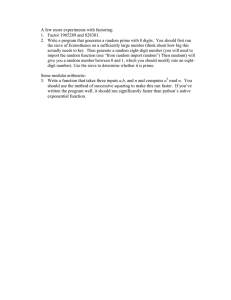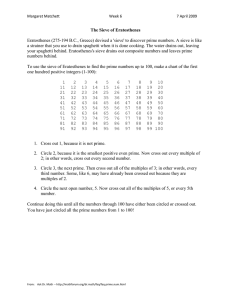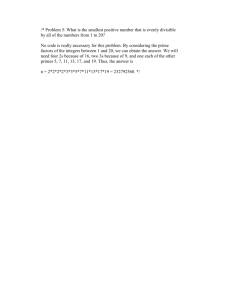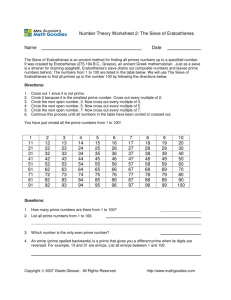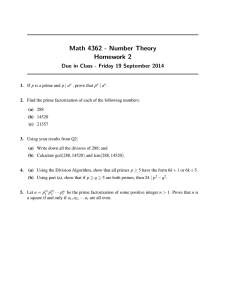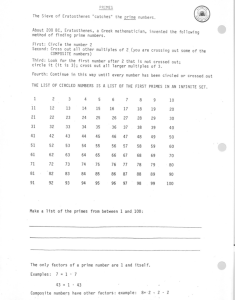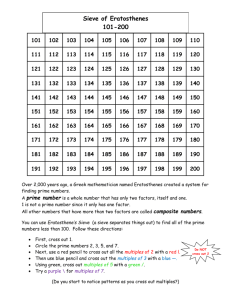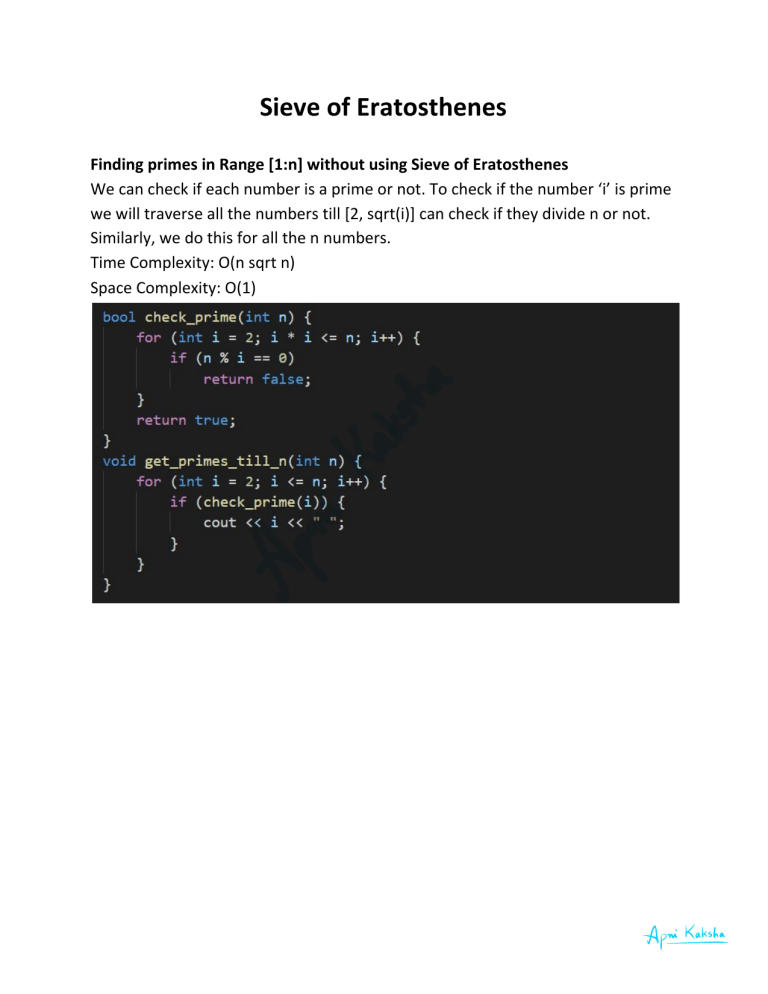
Sieve of Eratosthenes Finding primes in Range [1:n] without using Sieve of Eratosthenes We can check if each number is a prime or not. To check if the number ‘i’ is prime we will traverse all the numbers till [2, sqrt(i)] can check if they divide n or not. Similarly, we do this for all the n numbers. Time Complexity: O(n sqrt n) Space Complexity: O(1) Sieve of Eratosthenes Algorithm: We start from 2, and on each encounter of a prime number, we mark its multiples as composite. Time Complexity: O(n log log n) Space Complexity: O(n) Prime Factorization using Sieve Explanation: while( num ! = 1 ): We keep on dividing it with its smallest prime factor. The smallest prime factor is pre-calculated using a slightly modified prime sieve. Since we start from 2 and go on, we mark the first multiple as the spf. Preprocessing for Sieve: O(n log log n) Time Complexity for factorization: O(log n) Space Complexity: O(n) Additional Question: Find primes in the given range
